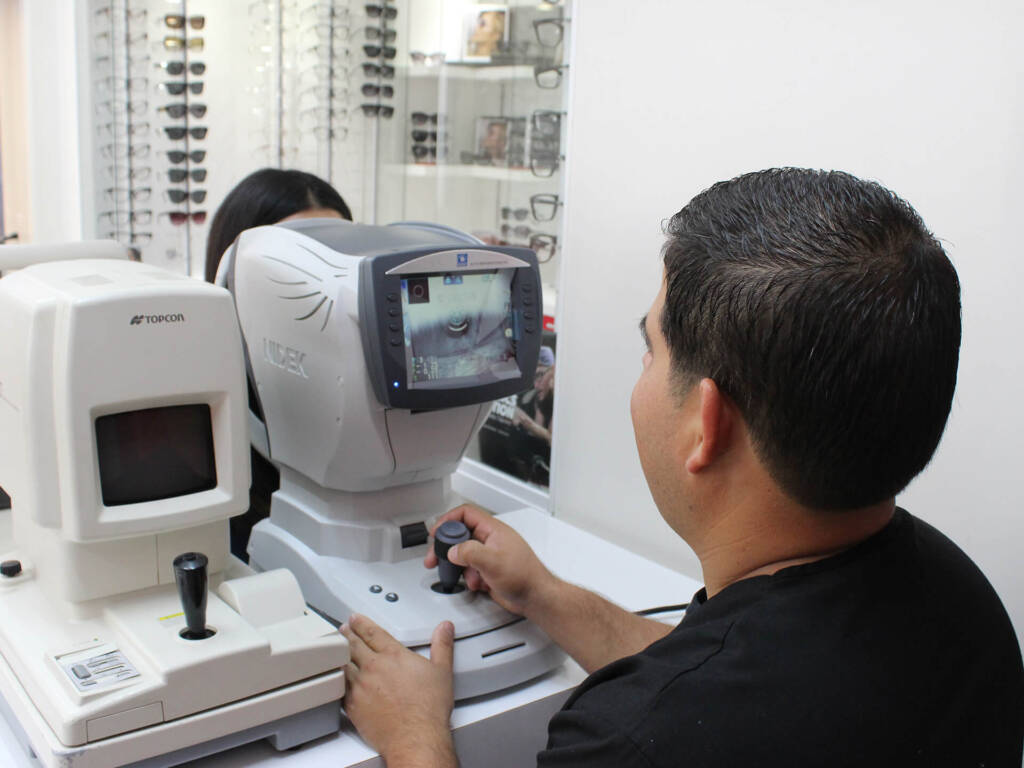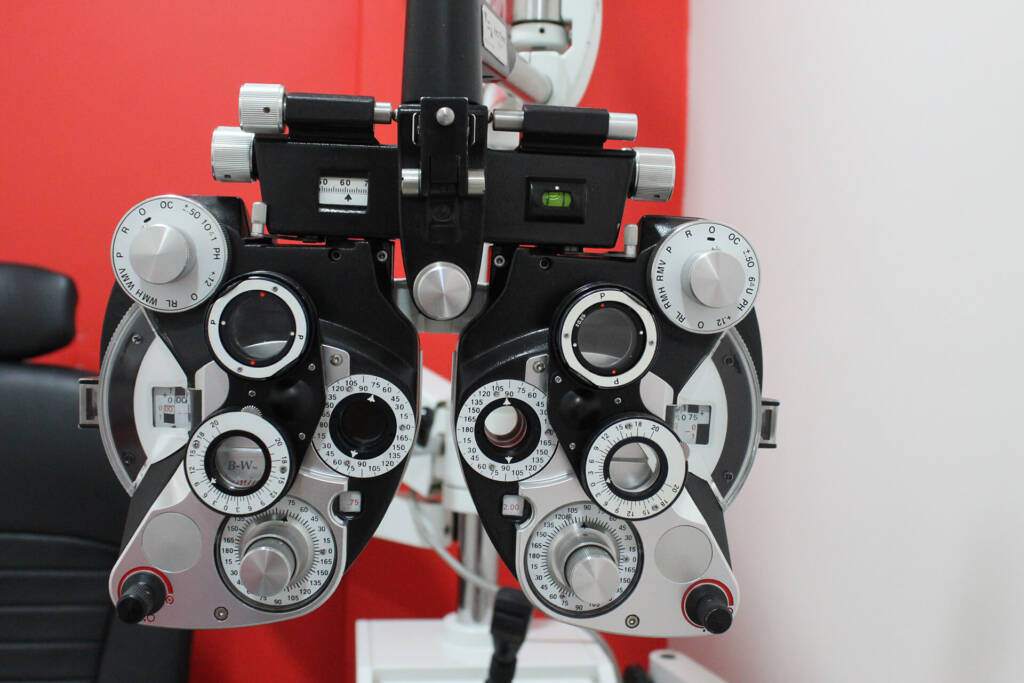COMPREHENSIVE EYE EXAM
WHAT ARE THE BENEFITS OF A COMPREHENSIVE EYE EXAM?
Comprehensive eye exams evaluate all aspects of your vision and eye health. The comprehensive eye exam looks at your eye externally and internally for any signs of eye disease, then test your vision in a variety of ways.

EXTERNAL EXAM
This is an evaluation of the whites of your eyes, the iris, pupil, eyelids, and eyelashes.

INTERNAL EXAM
This is an evaluation of the retina and optic nerve while your eyes are dilated.

VISUAL FUNCTION AND EYE HEALTH
This includes testing depth perception, color vision, peripheral vision, and the response of the pupils to light, as well as an evaluation of eye focusing, eye teaming, and eye movement abilities.

GLAUCOMA TESTING
This is a test of fluid pressure within your eyes to check for the possibility of glaucoma.

REFRACTION EYE EXAM
A refraction eye exam helps us to figure out what prescription you need for glasses or contact lenses. To test this, optometrist will ask you to look into a machine that displays lenses of different strengths. By switching the lens in front of each eye while you read letters and numbers on a chart, our specialist can figure out which lens is best for you. This refraction test also helps us to determine if you need a different strength lens in each eye.
During your eye exam, we may ask for your medical history and if you have been having any eye problems. Our specialist will perform a series of vision tests to determine your vision needs and current eye health.
How long does an eye exam take?
You should plan at least an hour for a comprehensive eye exam. There are a number of different kinds of vision screening tests that our eye doctor will perform to check overall vision health, including a glaucoma test, refraction test, and visual acuity test.
How often should I get and eye exam?
Getting an eye exam once every one or two years can help identify vision problems early on and improve vision quality if you need prescription changes.
Factors such as age, health, and a family history of vision problems may determine how often you need an eye exam.
Be sure to talk to your eye doctor to figure out how often your eyes need to be checked. If you have high blood pressure or diabetes, they may recommend more frequent exams.
If you are under the age of 40 and don’t have eye problems, you may only need an eye exam every 2 years. After age 40, consider going once a year. This is especially important if you notice a change in your vision, or if you have a family history of diabetes or glaucoma.
How much does an eye exam cost?
Eye exam costs vary greatly, depending where you get them done. Retail vision providers in the United States may charge you around $100. Independent eye doctors cost more.
With us, the eye exam is absolutely free, no purchase necessary, all you have to is make an appointment today at: (928) 248 0203.
Walk-ins always welcome but clients with appointments are given priority.